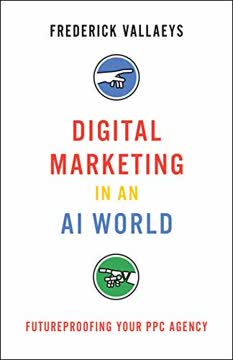Key Takeaways
1. AI's Impact: Automation, Efficiency, and the Human Role
For search-engine marketers (SEM), advances in artificial intelligence (AI) and machine learning (ML) have led to a real possibility that the primary roles humans play today—ad creative, account structure, targeting, landing pages, bidding, keyword creation—will be automated over the next few years.
Automation and Efficiency. AI and machine learning are transforming digital marketing by automating tasks like ad creation, targeting, and bidding, leading to increased efficiency and potentially lower costs. This shift requires SEM professionals to adapt and redefine their roles.
Human Expertise Still Needed. Despite automation, human expertise remains crucial for tasks that require creativity, intuition, and strategic thinking. Humans are needed to create and improve algorithms, ensure quality assurance, and infer opportunities where computers can't.
The Future of SEM. The future of SEM involves a collaborative approach where humans and machines work together to achieve optimal results. While automation reduces the need for people in certain roles, it also creates new opportunities for SEM professionals to focus on higher-level strategic and creative tasks.
2. Machine Learning: The Engine Behind AI in PPC
Machine learning is great at figuring out correlations within masses of data: indeed, it’s a lot better at finding patterns in large data sets than we humans are.
Moore's Law and AI. The current machine learning explosion is a result of Moore's Law, which states that computing power doubles roughly every eighteen months. This exponential growth has enabled significant advancements in AI and machine learning, making them increasingly viable for PPC advertising.
Machine Learning Models. Machine learning models are trained using historical data to identify patterns and correlations that can be used to make predictions. In PPC, these models are used to optimize bids, target ads, and improve ad relevance.
Training and Prediction. The machine learning process involves training the system with structured and labeled data, checking its output against actual results, and adjusting the model until it can make accurate predictions. Once trained, the system can use real-time data to generate predictions and improve its performance through a feedback loop.
3. Human Strengths: Creativity, Intuition, and Strategic Thinking
Marketing, however, remains a fundamentally human field: communicating with other people, telling them what you can offer, and inspiring them to act.
Creative Messaging. Humans excel at crafting compelling creative messaging that resonates with target audiences. While machines can analyze data and identify patterns, they lack the emotional intelligence and creative intuition to develop truly engaging and persuasive ad copy.
Intuitive Knowledge. Human intuition, based on experience and local knowledge, can often outperform machine learning models. For example, a PPC professional with local knowledge of traffic patterns can make better decisions about bid adjustments than a GPS system.
Strategic Thinking. Humans are better at setting goals, defining targets, and measuring results. They can have focused business conversations with stakeholders and translate complex business objectives into clear, actionable strategies for PPC campaigns.
4. Machine Strengths: Data Processing, Bidding, and Budgeting
With the “Smart” initiative, Google is trying to make things easier for these businesses.
Automated Bidding. Machines excel at bid management, adjusting bids in real-time based on a multitude of factors to achieve specific goals, such as maximizing conversions or return on ad spend (ROAS). This is a complex mathematical task that humans cannot perform manually with the same speed and accuracy.
Budget Automation. Machines can also automate budget allocation, distributing funds across different channels and campaigns to optimize performance. This involves analyzing vast amounts of data and making adjustments based on real-time results.
Scalability and Complexity. Machines are better at handling scalability and complexity, managing thousands of bid permutations and customer segments. They can process vast amounts of data and identify patterns that humans would miss.
5. The Doctor Role: Empathy, Diagnosis, and Personalized Solutions
You’ll also have a job, because machines plus humans can outperform machines acting alone.
Understanding Clients. The "doctor" role involves understanding clients' needs, diagnosing problems, and recommending personalized solutions. This requires empathy, communication skills, and the ability to connect the dots and see the whole picture.
Delivering Bad News. Like a doctor, PPC professionals must sometimes deliver bad news, explaining why certain goals are unattainable and recommending alternative strategies. This requires honesty, transparency, and the ability to manage expectations.
Personalized Treatment. The "doctor" role involves tailoring solutions to the specific needs of each client, taking into account their unique circumstances, goals, and constraints. This requires a deep understanding of the client's business and the ability to adapt strategies as needed.
6. The Pilot Role: Monitoring, Intervention, and Competitive Advantage
The best results happen when machines and humans work together.
Staying on Top of Things. The "pilot" role involves monitoring PPC campaigns, identifying anomalies, and intervening when necessary. This requires vigilance, attention to detail, and the ability to react quickly to changing circumstances.
Exploiting Opportunities. The "pilot" role also involves identifying and exploiting competitive advantages. This requires strategic thinking, creativity, and the ability to capitalize on competitors' mistakes.
Defensive Maneuvers. The "pilot" role includes defensive maneuvers, such as avoiding vanity bidding and protecting against competitors' tactics. This requires a deep understanding of the PPC landscape and the ability to anticipate and respond to threats.
7. The Teacher Role: Training, Customization, and Model Refinement
One of Google’s key tenets is transparency and information-sharing.
Training the System. The "teacher" role involves training machine learning systems, providing them with the data and rules they need to make accurate predictions. This requires a deep understanding of the underlying algorithms and the ability to identify and correct errors.
Customizing Models. The "teacher" role also involves customizing machine learning models to meet the specific needs of each client. This requires the ability to identify relevant factors, adjust parameters, and refine the model over time.
Model Refinement. The "teacher" role includes refining machine learning models, ensuring they are accurate, reliable, and effective. This requires continuous monitoring, testing, and iteration.
8. Value Proposition: Beyond Automation, Towards Strategic Partnership
The truth is there are many ways to futureproof your agency, and futureproofing will be a main focus of the chapters that follow.
Beyond Automation. The value proposition of a PPC agency must go beyond automation. It must focus on the strategic partnership between the agency and the client, emphasizing the agency's ability to understand the client's business, set goals, and develop customized strategies.
Unique Business Data. The value proposition should highlight the agency's ability to leverage the client's unique business data to improve PPC results. This involves integrating data from various sources, such as CRM systems, sales data, and customer feedback, to create a more complete picture of the customer journey.
Concrete Examples. The value proposition should be supported by concrete examples of how the agency has helped other clients achieve their goals. This involves showcasing case studies, testimonials, and other evidence of the agency's expertise and effectiveness.
9. Fundamentals Matter: Expertise, Targeting, and Creative Messaging
In the final analysis, it is no longer just about pitching your product.
Expertise and Knowledge. Despite advances in automation, expertise and knowledge of PPC fundamentals remain crucial. PPC professionals must understand how the system works, how to set up campaigns, and how to optimize performance.
Granular Targeting. With increased targeting capabilities, PPC professionals must be able to develop highly specific and creative messaging that resonates with different customer segments. This requires a deep understanding of customer demographics, psychographics, and behavior.
Creative Messaging. The creative aspect of PPC, such as writing ad text, remains essential. Humans are still better than machines at crafting compelling and persuasive ad copy that connects with target audiences.
10. The Sixth "P": Psychology and Customer Understanding
The basic premise of search and, in fact, all marketing, is to connect a business with a consumer who has a specific problem the business is able to solve.
Customer Understanding. Understanding customer psychology is crucial for effective PPC advertising. PPC professionals must be able to identify the values, desires, and needs of their target audiences and craft messaging that resonates with them.
Life-Event Targeting. Life-event targeting, such as targeting people who are about to get married or just graduated from college, can be highly effective. However, it requires a deep understanding of cultural nuances and the ability to adapt messaging to different audiences.
Pattern Recognition. Machine learning can be used to identify patterns in customer behavior and create highly targeted audiences. PPC professionals must be able to leverage these insights to develop more effective campaigns.
11. Transparency and Trust: Building Confidence in the AI Era
Most people come to the right conclusions if you give them the right information.
Transparency is Key. In the age of AI, transparency is more important than ever. PPC professionals must be able to explain how machine learning systems work, what data they are using, and how they are making decisions.
Building Confidence. Building confidence in AI systems is essential. PPC professionals must be able to demonstrate the value of these systems and show how they are helping clients achieve their goals.
Human Oversight. Human oversight is crucial for ensuring that AI systems are used ethically and effectively. PPC professionals must be able to monitor these systems, identify potential problems, and intervene when necessary.
Last updated:
FAQ
1. What is "Digital Marketing in an AI World" by Frederick Vallaeys about?
- Focus on AI and PPC: The book explores how artificial intelligence (AI) and machine learning are transforming pay-per-click (PPC) advertising, especially within Google Ads.
- Futureproofing Agencies: It provides strategies for PPC professionals and agencies to adapt, thrive, and remain relevant as automation increases in digital marketing.
- Human vs. Machine Roles: Vallaeys discusses the evolving roles of humans versus machines, emphasizing collaboration for optimal results.
- Practical Guidance: The book offers actionable advice on positioning yourself and your agency, developing new skills, and reframing your value proposition in an AI-driven landscape.
2. Why should I read "Digital Marketing in an AI World" by Frederick Vallaeys?
- Industry Insider Perspective: Written by a former Google AdWords Evangelist, the book offers unique insights from someone who helped shape the PPC industry.
- Actionable Strategies: It provides concrete steps for PPC professionals and agency owners to adapt to rapid technological changes.
- Clarifies AI Hype: The book demystifies AI and machine learning, separating fact from fiction and addressing common fears about job loss.
- Futureproofing Your Career: Readers learn how to develop irreplaceable skills and position themselves for long-term success in digital marketing.
3. What are the key takeaways from "Digital Marketing in an AI World" by Frederick Vallaeys?
- Humans + Machines = Best Results: The most effective PPC outcomes come from combining human creativity and intuition with machine efficiency and data analysis.
- Evolving Roles: PPC professionals must shift from repetitive tasks to higher-value roles: Doctor (diagnostician), Pilot (overseer/strategist), and Teacher (system trainer).
- Value Proposition Shift: Agencies must redefine their value beyond basic campaign management, focusing on unique insights, customization, and strategic guidance.
- Continuous Learning Required: Staying current with technology, reskilling, and process improvement are essential for ongoing relevance and success.
4. How does Frederick Vallaeys define the impact of AI and machine learning on PPC advertising?
- Automation of Repetitive Tasks: AI excels at automating data-heavy, repetitive, and mathematical aspects of PPC, such as bidding and reporting.
- Human Creativity Still Needed: Machines struggle with creative messaging, nuanced strategy, and understanding unique business contexts—areas where humans excel.
- Collaboration is Key: The best results occur when humans and machines work together, leveraging each other's strengths.
- Not a Total Replacement: While AI reduces the need for manual work, it does not make PPC professionals obsolete; instead, it changes the nature of their work.
5. What are the three key human roles in PPC agencies according to "Digital Marketing in an AI World"?
- Doctor: Acts as a diagnostician, identifying problems, providing personalized solutions, and communicating with clients empathetically.
- Pilot: Oversees and monitors campaigns, intervening when anomalies or opportunities arise, and ensuring systems stay on course.
- Teacher: Trains and refines machine learning systems, providing the right data, context, and feedback to improve automated outcomes.
- Role Adaptation: PPC professionals should focus on these roles to remain indispensable as automation increases.
6. What does Frederick Vallaeys say humans do better than machines in PPC marketing?
- Intuitive Problem Solving: Humans can identify and act on factors machines may overlook, such as sudden weather changes or cultural trends.
- Creative Messaging: Crafting compelling ad copy and unique value propositions remains a human strength.
- Strategic Goal Setting: Humans are better at understanding business objectives, setting nuanced goals, and translating them into actionable PPC strategies.
- Client Communication: Building trust, explaining complex concepts, and managing client relationships require human empathy and communication skills.
7. What does "Digital Marketing in an AI World" identify as tasks machines do better than humans in PPC?
- Bid Management: Machines can process vast amounts of data and adjust bids in real time across thousands of variables, far beyond human capacity.
- Attribution Modeling: AI can analyze complex customer journeys and assign value to multiple touchpoints more accurately than manual methods.
- Pattern Recognition: Machine learning excels at finding correlations and trends in big data that would be invisible or too time-consuming for humans.
- Scalability and Speed: Automated systems can handle large-scale, complex campaigns efficiently and with fewer errors.
8. How does Frederick Vallaeys recommend PPC agencies redefine their value proposition in an AI-driven world?
- Go Beyond Automation: Agencies should not just rely on standard automation tools like Google Smart Bidding, which are available to everyone.
- Leverage Unique Insights: Use proprietary data, industry expertise, and creative strategies to deliver results machines alone cannot achieve.
- Customization and Integration: Combine multiple tools, data sources, and custom automations to address specific client needs.
- Communicate Value Clearly: Be able to explain and demonstrate how your agency’s approach delivers superior outcomes compared to automated, one-size-fits-all solutions.
9. What practical advice does "Digital Marketing in an AI World" give for futureproofing your PPC agency workforce?
- Emphasize Process Over Rockstars: Build strong, repeatable processes so average team members can deliver excellent results, not just top performers.
- Hire for Adaptability: Seek employees who are eager to learn, adapt, and reskill as technology evolves.
- Develop New Skillsets: Encourage proficiency in analytics tools (e.g., R, Tableau, BQML), automation platforms, and creative problem-solving.
- Foster Knowledge Sharing: Invest in training, documentation, and knowledge management to keep the team current and effective.
10. What are the "fundamentals" that matter more than ever in PPC, according to Frederick Vallaeys?
- Understanding Core Concepts: Mastery of PPC basics—such as bidding logic, conversion tracking, and campaign structure—remains essential.
- Creative Targeting: Ability to segment audiences and craft tailored messaging for micro-segments is increasingly important.
- Strategic Thinking: Knowing when and how to intervene in automated systems, set goals, and measure success is critical.
- Continuous Learning: Staying updated on platform changes and new features ensures ongoing effectiveness and competitiveness.
11. How does "Digital Marketing in an AI World" suggest agencies approach automation and task prioritization?
- Automate Repetitive, Time-Consuming Tasks: Focus on automating high-frequency, labor-intensive activities like ad testing and reporting first.
- Retain Human Input for Creativity: Keep creative tasks, such as ad copywriting and strategic planning, in human hands.
- Use Pseudocode for Process Mapping: Break down tasks into step-by-step instructions to identify what can be automated.
- Balance Efficiency and Value: Make trade-offs between automation and manual work based on impact, cost, and client needs.
12. What are the best quotes from "Digital Marketing in an AI World" by Frederick Vallaeys, and what do they mean?
- "Humans plus machines can outperform machines acting alone." – Emphasizes that collaboration, not replacement, is the path to superior PPC results.
- "Your old value proposition is toast." – Warns agencies that relying on outdated services or skills is no longer viable in the AI era.
- "Seek to be an indispensable complement to something that’s getting cheap and plentiful." (Hal Varian, quoted) – Advises professionals to add value where automation commoditizes basic tasks.
- "The rate of change in our world today is the SLOWEST it’s ever going to be again." – Highlights the accelerating pace of technological change and the need for continuous adaptation.
- "Let go of your fear of future shock. Enjoy and benefit from the new age of machine learning in PPC marketing." – Encourages readers to embrace change and see AI as an opportunity, not a threat.
Review Summary
Digital Marketing in an AI World receives mixed reviews, with an average rating of 4 out of 5. Positive reviews praise its insights on the future of PPC and adapting to AI. Some find it easy to read and valuable for agency owners. However, critics argue it's too basic for experienced marketers and lacks depth. The book discusses the shift in PPC skills, the role of agencies, and how to identify areas where human expertise remains valuable. Some readers appreciate its accessibility, while others find it outdated or unimpressive for a 2019 publication.
Similar Books


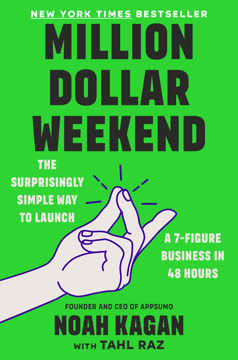


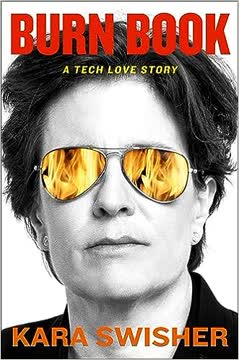


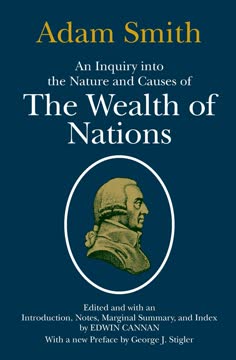
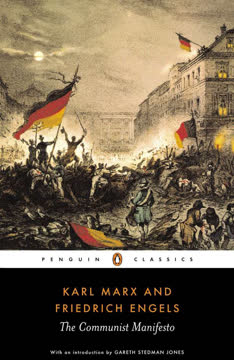
Download PDF
Download EPUB
.epub digital book format is ideal for reading ebooks on phones, tablets, and e-readers.
